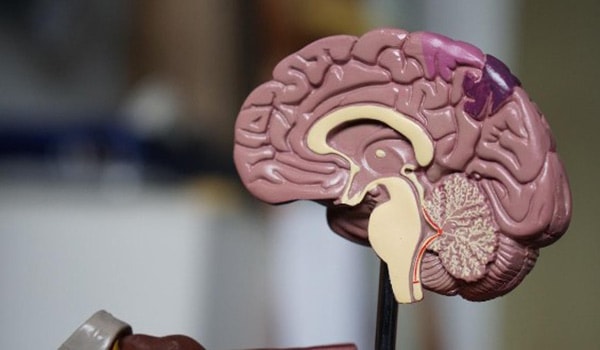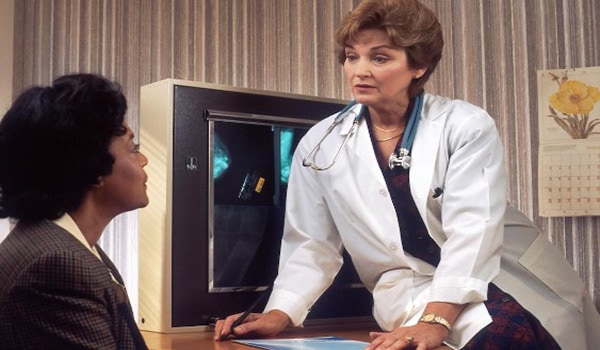
Navigating through a diagnosis of dementia can be challenging not only for the individual but also for the family members and loved ones. Understanding dementia, its stages, and how to manage it effectively is vital to ensure the best care for the patient. This is often a path filled with feelings of confusion, fear, and frustration, but having the right knowledge can make the journey more manageable and less uncertain. In this article, we delve into that understanding, exploring the dementia stages and how they can be managed for an improved quality of life. Read here Managing the Stages of Dementia.
Table of Contents
Understanding Dementia and Its Impact
A common misconception about dementia is that it’s a specific disease. Contrarily, dementia is a general term used to describe a decline in mental ability severe enough to interfere with daily life. Alzheimer’s is the most common type of dementia, accounting for 60-80 percent of cases. Dementia describes a group of symptoms affecting memory, thinking, and social abilities severely enough to interfere with daily functioning.
Dementia is progressive, meaning it starts with mild cognitive problems and gradually leads to severe brain damage. The person will move through a series of stages that reflect the degree of damage to the brain. It’s important to understand these stages to chart a manageable course through the disease and provide the necessary care.
In the early stage of dementia, individuals may experience mild memory loss and have difficulty finding the right words or organizing their thoughts. They may also show signs of forgetfulness and struggle with concentration. Despite these challenges, individuals in this stage can usually still manage their daily activities and maintain their independence.
In the middle stage, known as moderate dementia, the symptoms become more noticeable and impactful. In addition to memory loss, individuals may experience confusion, wandering, and disorientation, often getting lost even in familiar places. They may also exhibit mood swings, agitation, and difficulty with problem-solving and decision-making.
In the late or severe stage of dementia, individuals experience significant cognitive decline and are highly dependent on others for their care. Memory loss is extremely pronounced, and individuals may not recognize family members or have difficulty communicating. Physical abilities, such as walking and swallowing, may also become impaired.
Knowing what to expect in each of these stages can help you plan ahead accordingly. While dementia affects each person differently, there does seem to be a certain pattern, with the symptoms appearing progressively worse over time. Organizations like the Fisher Center for Alzheimer’s Research Foundation have numerous resources to help you get a better understanding of dementia and its stages. By understanding the different stages, you can plan for future needs and take advantage of the resources available to you.
The Importance of Early Diagnosis
A diagnostic evaluation includes a thorough physical, neurological, and psychiatric evaluation. Cognitive testing will also be done. An early and detailed diagnosis is beneficial as it can help rule out other treatable conditions, such as depression and normal age-related memory loss. Broadly, early diagnosis thus allows for better planning of care, treatment to manage symptoms, and an opportunity to take part in clinical trials.

It’s essential to seek help as soon as you suspect something might not be right. Early diagnosis means you can start treatments that may slow the progression of the disease and can have a tremendous impact on the quality of life of the person diagnosed. Early diagnosis also allows for adequate time to plan for the future, making decisions on care options and legal and financial planning easier.
Role of Healthy Living Habits
While there’s no known cure for dementia, maintaining a healthy lifestyle can delay its onset or slow its progression. Good nutrition, regular physical and mental exercise, sufficient sleep, and maintaining social connections can all contribute towards a better quality of life. Regular check-ups with a healthcare provider can help detect symptoms early and manage them effectively.
Exercise and a healthy diet can help slow down cognitive decline and can also boost the overall health of individuals. Regular physical activity increases blood flow to the whole body, including the brain, which can help to maintain health. Activities like swimming, walking, or dancing can be beneficial.
Maintaining a healthy diet rich in antioxidants can help protect brain cells. Consuming plenty of fruits, vegetables, lean protein, and healthy fats can contribute to better brain health. Moreover, ample sleep and rest are crucial in managing the symptoms of dementia and lead to overall better health.
Coping with Behavioral Changes
As dementia progresses, individuals may experience changes in behavior. This might include agitation, aggression, wandering, hallucinations, or sleep disturbances. Dealing with these changes can be challenging. However, care can be managed effectively by understanding the root cause of these behaviors and responding appropriately.
Behavioral changes can stem from a variety of causes, including discomfort, environment, or failure to communicate. It’s important to approach the person with patience, understanding, and reassurance. Medication might be necessary in some cases, but non-drug approaches should be tried first.
Providing a calm and soothing environment, regular routines, and avoiding stressful situations can help manage these behaviors. Engaging the person in activities they enjoy and ensuring they have regular physical activity and a healthy diet can also contribute towards managing behavioral changes. It’s also essential to keep communication simple and clear.
Support for Caregivers
Being a caregiver for someone with dementia is a demanding job. It’s essential to take care of your well-being first so you can continue providing quality care. Taking regular breaks, joining a support group, and seeking counseling if needed are all ways of ensuring self-care.

It’s important to keep in mind that you’re not alone on this journey. Seek help when you need to, and take time to rest and recharge. Structuring the day for the person with dementia by creating a routine can help lighten the load. Meal preparation, dressing, bathing, and grooming can be scheduled to make things predictable and less stressful for both the person with dementia and the caregiver.
So, keep patience and take things a day at a time. Remember, your health is just as important as the person you are caring for. If you need help, don’t hesitate to ask. Many resources are available for caregivers of people with dementia.
Planning for the Future
Planning for the future is crucial when dealing with a progression like dementia. This involves making legal and financial arrangements, housing decisions, and end-of-life preferences known. It is essential to approach this with care and consider the person with dementia’s wishes and needs.
Legal and financial decisions include making a will, assigning a power of attorney, living wills, and healthcare directives. It is vital to consult with a legal expert for this process. In addition, the person with dementia’s housing needs will change over time, and it is beneficial to discuss these decisions early on.
End-of-life decisions, such as do-not-resuscitate orders and palliative care needs, should also be discussed. This can be emotionally difficult, but discussing these matters early on can ensure that the person with dementia’s wishes are respected, and the family understands their preferences.
Utilizing Available Resources
There are numerous resources available to both individuals with dementia and their caregivers. These include community services, online resources, and professional organizations that provide educational materials, support groups, and professional care. Utilizing these resources can ease the journey through the stages of dementia.
Support groups can provide emotional support and practical advice to both individuals with dementia and their caregivers. Sharing experiences with others who are going through the same journey can be very empowering. In addition, professional organizations often offer educational materials that can help with understanding dementia and how to manage it.
Professional care may be required as dementia progresses. This could range from home health aides to nursing homes. It’s essential to investigate all options and make the best choice for both the person with dementia and the family.
Overall, although managing dementia can be challenging, armed with the right knowledge and resources, it’s possible to navigate through this journey with strength and compassion. Understanding dementia stages and working towards providing the best possible care can truly make a difference in the quality of life for both those diagnosed with dementia and their caregivers. One thing that remains constant in every stage is the need for love, compassion, and understanding.
Follow – https://sggreek.com for More Updates


